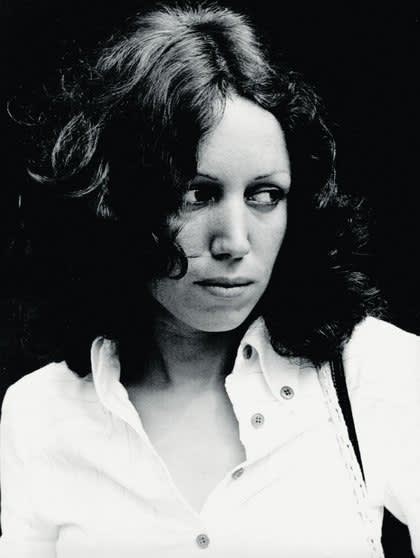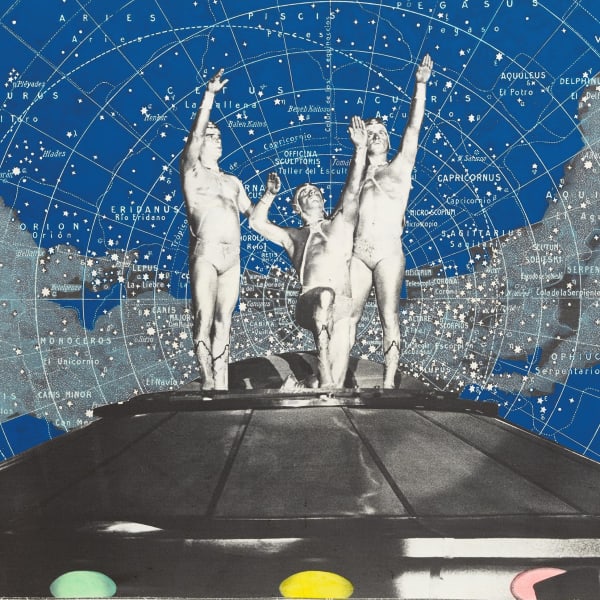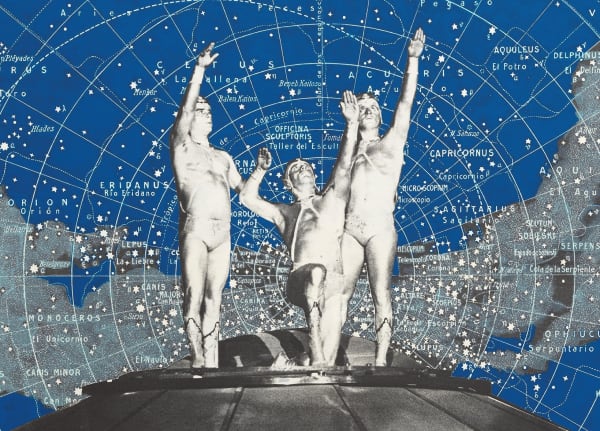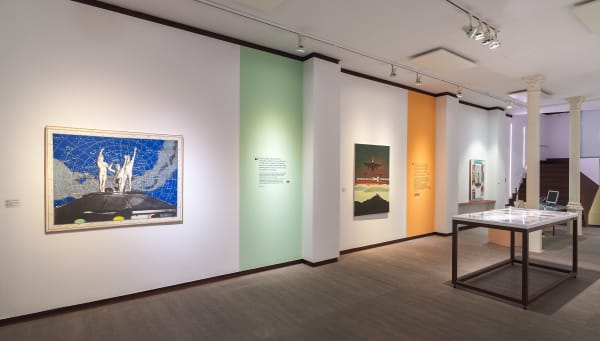Eulàlia Grau Terrassa, b. 1946
"At that moment we were not feminists. Now, yes, of course. But at that time, it was part of a spontaneous protest. Because it was obvious that it couldn’t happen. It was a male-dominated society. The heads of the offices were men, the women were only secretaries or workers. It was so obvious that no theory was needed."- Eulàlia Grau
Eulàlia Grau holds a significant role in a crucial period of transformation within Catalan and Spanish society. Her artistic endeavors, spanning from the 1970s onwards, center around feminist advocacy and critiquing the capitalist system by exploring the connections between well-being, consumption, and exploitation. A recurring feature in her work is the utilization of collage or photomontage techniques to challenge societal norms within everyday and familial contexts. Grau herself highlights the existence of racial undertones within certain feminist ideologies, particularly in the discriminatory treatment observed among individuals who possess specific sociopolitical and economic privileges. Through her art, she strives to shed light on the imperative need for feminism to combat racism, aligning with many contemporary demands and emphasizing that feminism must inherently encompass an anti-racist stance.
Eulàlia Grau (Terrassa, 1946) began to study Fine Art in Barcelona but abandoned it in favour of cinema studies at the Sala Aixelà under teachers such as Pere Portabella and Alexandre Cirici, and at the Eina School where she met Albert Ràfols-Casamada and Josep Maria Carandell. In Milan she worked at the design studio Olivetti. Most of her work was done during the seventies and early eighties. After a short stay in Germany in the mid-eighties, she moved to Japan and China where she would remain until the late nineties, when she moved back to Barcelona and resumed her artistic career. In 2013, MACBA presented an exhibition focused on her most critical works.
In her work, Eulàlia uses photographs from the media, which she re-contextualises by establishing a dialogue between them, bringing out some very critical social messages. Besides emulsified canvases and silk-screens, she also produces posters and insertions in books and magazines. In an attempt to escape the usual artistic media channels, Eulàlia constructs her work as an uncomfortable testimony of the society of her time. Her work documents the weaknesses, contradictions and perversities of the capitalist system, not only in the most obvious mechanisms of perpetuation such as the police, the army and the prisons, but also in more subtle institutions such as the family, schools and the media. One of her subjects of interest is gender critique. Through it she denounces the abusive and unequal situation of women and questions female stereotypes in the public and private spheres.
-

EXPLOSION
BARCELONA 11 Jan - 26 Mar 2024Mayoral brings together works by Joan Miró, Antonio Saura, Equipo Crónica, Eulàlia Grau, Antoni Tàpies, Manolo Millares, and Juana Francés presented through the gaze of two explosive scenes from Michelangelo...Read more -

Breaking the rules. Mari Chordà | Angela Garcia Codoñer | Isabel Oliver | Eulàlia Grau
PARIS 12 Jan - 18 Mar 2023ekekeRead more -

Eulàlia Grau. The Rebellion of the Look
BARCELONA 24 Nov 2022 - 12 Jan 2023Mayoral presents a solo exhibition by Eulàlia Grau, consisting of a selection of seven pieces from the series Etnografies (Ethnographies) in which the artist denounced the submission, injustice and repression...Read more
-

¡La revolución será feminista o no será! | Julie Crenn
Julie Crenn speaks about Mari Chordà, Angela Garcia Codoñer, Isabel Oliver and Eulàlia Grau on the occasion of the exhibition "Breaking the rules" at Galeria Mayoral, Paris January 5, 2023The exhibition requires us to place the works in context. We are in Spain, in the 1960s-1970s. Franco has been in power since 1936. He...Read more -

Interview Eulàlia Grau at Galeria Mayoral
Assumpta Bassas interviews Eulàlia Grau on the ocassion of her exhibition "The Rebellion of the Look" at Galeria Mayoral, Barcelona December 21, 2022Assumpta Bassas interviews Eulàlia Grau on the occasion of her exhibition "The Rebellion of the Look" at Galeria Mayoral Barcelona. 24 nov 2022 - 12 jan 2023Read more -

Eulàlia, cultivating the rebellion of the look | Assumpta Bassas
Assumpta Bassas talks about the exhibition "The Rebellion of the Look" by Eulàlia Grau at Galeria Mayoral, Barcelona November 25, 2022Eulàlia Grau, Exhibition, Galeria Mayoral, 2022, The Rebellion of The Look, La Rebel·lió de la MiradaRead more










